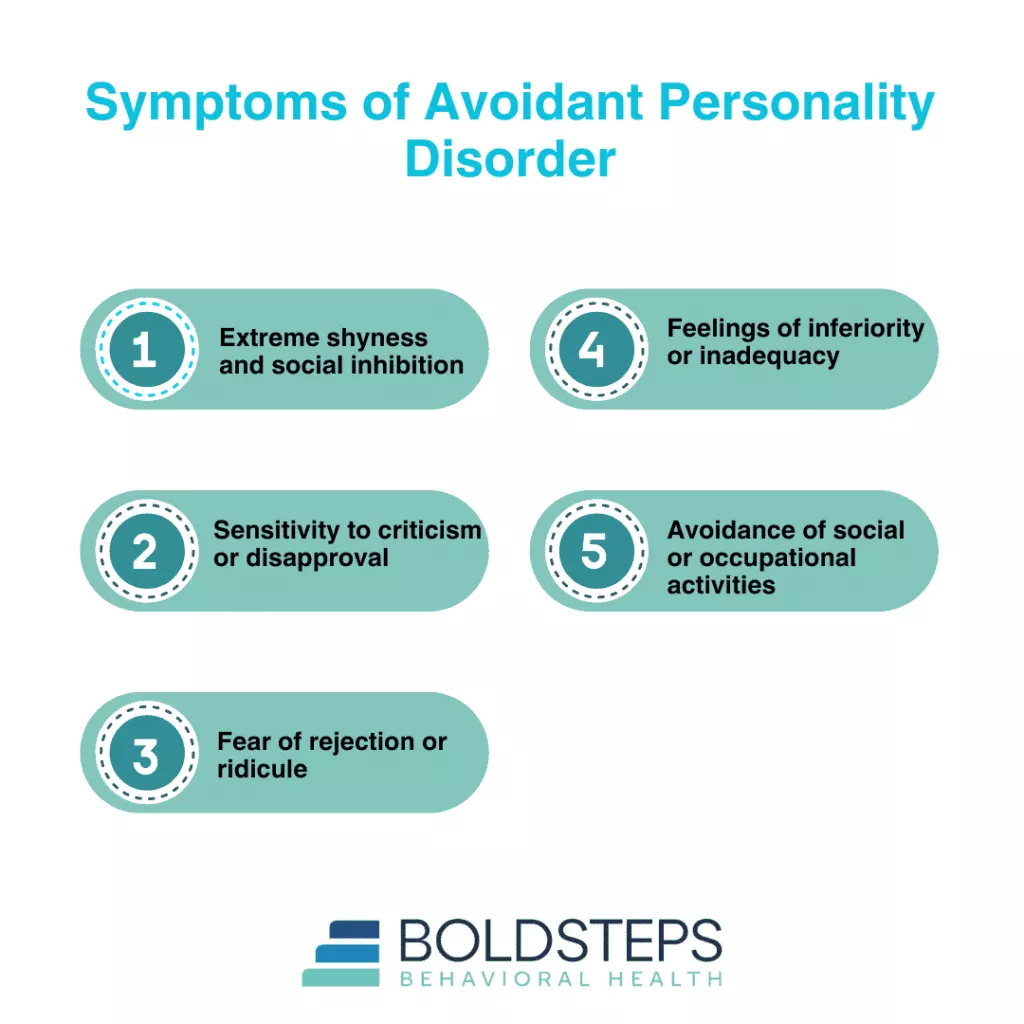AvPD- Avoidant Personality Disorder is a rare mental disorder that affects between 2.5% of the American population. According to studies, it is a complex disorder characterized by chronic feelings of social restraint, a strong fear of rejection, and persistent feelings of inadequacy.
People with AvPD frequently want deep connections but steer clear of them out of extreme anxiety and a fear of being judged. Isolation, mental pain, and problems in one’s personal and professional life might result from this avoidance.
Nonetheless, people with AvPD can significantly improve their overall well-being and manage their symptoms with the correct Avoidant personality disorder therapy measures. Let’s scroll down this blog and learn everything about AvPD!
Avoidant Personality Disorder Therapy- A Detailed Overview!
AvPD’s usual symptoms include intense shyness, sensitivity to criticism, and a great fear of rejection. AvPD sufferers frequently shun social situations and novel experiences because they believe they are inferior or undeserving of other people’s attention. By preventing social interaction, avoidance can lead to a vicious cycle in which loneliness and feelings of inadequacy are worsened.
AvPD has several different causes, many of which are a result of a meeting of early life events, environmental variables, and genetic predispositions. For example, a childhood experience of rejection, criticism, or maltreatment may play a role in the development of AvPD. However, Avoidant personality disorder therapy programs can work on fundamental causes and bring you a new way to start a life.
Symptoms of Avoidant Personality Disorder (AvPD)
Before diving into treatment, it’s essential to understand the symptoms of AvPD. These may include:
- Extreme shyness and social inhibition
- Sensitivity to criticism or disapproval
- Fear of rejection or ridicule
- Feelings of inferiority or inadequacy
- Avoidance of social or occupational activities due to fear of negative judgment
The persistent avoidance of social situations leads to a vicious cycle where isolation deepens feelings of inadequacy. The goal of AvPD therapy is to break this cycle by addressing the underlying fears and beliefs that drive avoidance behaviors.
Avoidant Personality Disorder Therapy Options
The major treatment for AvPd is psychotherapy. However, there is no solid proof of how this works and how it is beneficial for people. The other treatment options include:
-
CBT (Cognitive Behavioural Therapy)
Cognitive-Behavioral Therapy (CBT) is one of the most widely used treatments for AvPD. This therapy focuses on identifying and changing negative thought patterns and behaviors that contribute to avoidance. People with AvPD often have deeply ingrained beliefs about their own inadequacy, as well as a fear of being judged by others.
Through CBT, individuals can:
- Challenge these negative thoughts
- Gradually face feared social situations in a controlled manner
- Build self-esteem and reduce feelings of inadequacy
-
DBT (Dialectical Behavior Therapy)
Dialectical Behavior Therapy (DBT) is another effective treatment for AvPD. Originally developed for Borderline Personality Disorder, DBT has been adapted to help individuals with AvPD manage their emotions and reduce avoidance behaviors.
DBT combines cognitive-behavioral techniques with mindfulness strategies, helping individuals:
- Regulate their emotions
- Tolerate distress in social situations
- Cultivate mindfulness, reducing anxiety in the moment
-
Group Therapy
Group therapy offers an opportunity for individuals with AvPD to interact with others in a safe, structured environment. This therapeutic approach provides:
- A space to practice social skills in real time
- Feedback from peers and therapists
- Opportunities to work through fears of rejection in a supportive group
-
Schema Therapy
Schema Therapy is an integrative approach that focuses on identifying and healing deeply rooted patterns of thinking, or schemas, that developed early in life. These schemas may include beliefs like “I am unworthy” or “People will always reject me,” which perpetuate AvPD behaviors.
Schema Therapy helps individuals:
- Uncover these maladaptive schemas
- Reframe and challenge them
- Build healthier coping mechanisms and interpersonal skills
-
Social Skills Training
Social skills training, often integrated with other therapeutic approaches, can help individuals with AvPD learn how to communicate more effectively and build better relationships. This type of training can:
- Teach individuals to read social cues
- Practice assertiveness
- Improve verbal and non-verbal communication
Finding the Right AvPD Therapy Center? Call Bold Steps!
Avoidant Personality Disorder is a difficult condition, but with the correct therapy approach, people can make significant progress in controlling their symptoms and living more fulfilled lives. So, if you are ready to kick start a new life then join hands with Bold Steps.
Ready to Take the Next Step?
If you or a loved one is struggling with Avoidant Personality Disorder, seeking professional help is the first step toward healing. At Bold Steps Behavioral Health, we offer evidence-based therapies that can help you break free from the cycle of avoidance and reclaim your life. Contact us today to learn more about our comprehensive addiction treatment options for AvPD and other mental health conditions.
Bold Steps Behavioral Health provides all-encompassing care based on methods supported by research to assist you in taking back your life. You can kick your opiate addiction treatment and start down the path to long-term recovery with our help. Call us now at: 717.896.1880!
FAQs: Avoidant Personality Disorder Therapy
What is avoidant personality disorder (APD)?
Avoidant personality disorder (APD) is a mental health condition characterized by feelings of social inhibition, inadequacy, and extreme sensitivity to negative evaluation. Individuals with APD often avoid social situations and relationships due to fear of rejection or criticism.
How is APD diagnosed?
APD is diagnosed by a mental health professional based on a thorough evaluation of symptoms and behaviors. The diagnosis typically involves a clinical interview and may include additional assessments.
Is therapy effective for APD?
Yes, therapy can be very effective in treating APD. By addressing underlying beliefs and coping mechanisms, therapy can help individuals with APD overcome their fears and improve their social relationships.
Can medication be used to treat APD?
While there is no specific medication approved for the treatment of APD, antidepressants may be helpful in managing symptoms such as anxiety and depression.
When should I seek help for APD?
If you are experiencing symptoms of APD, such as social isolation, fear of rejection, or low self-esteem, it’s important to seek professional help. Early diagnosis and treatment can improve outcomes.





